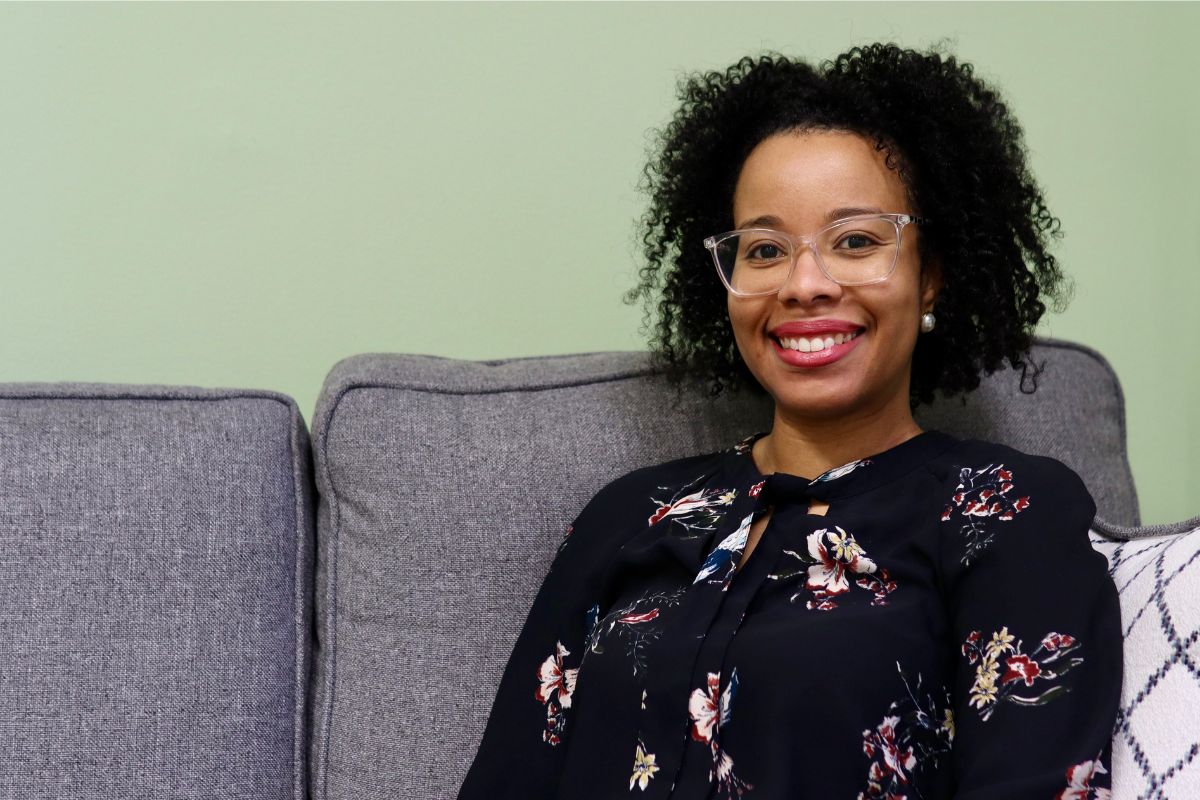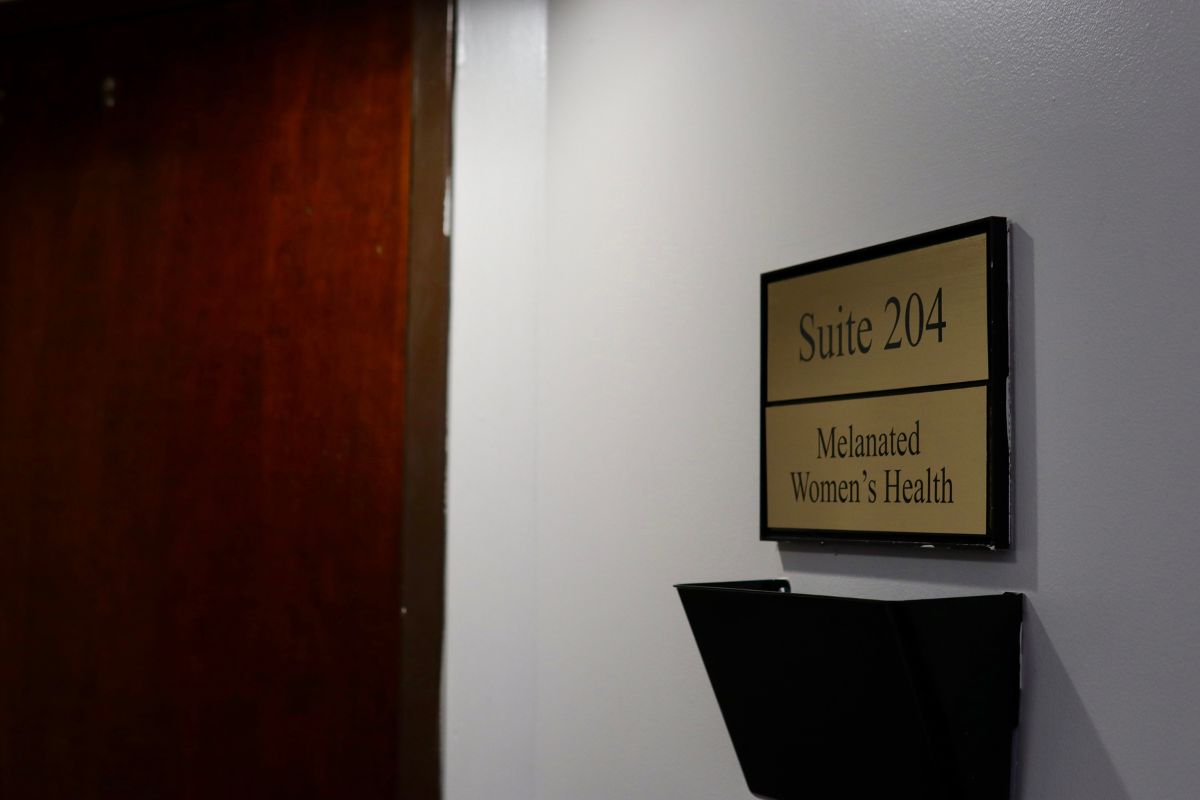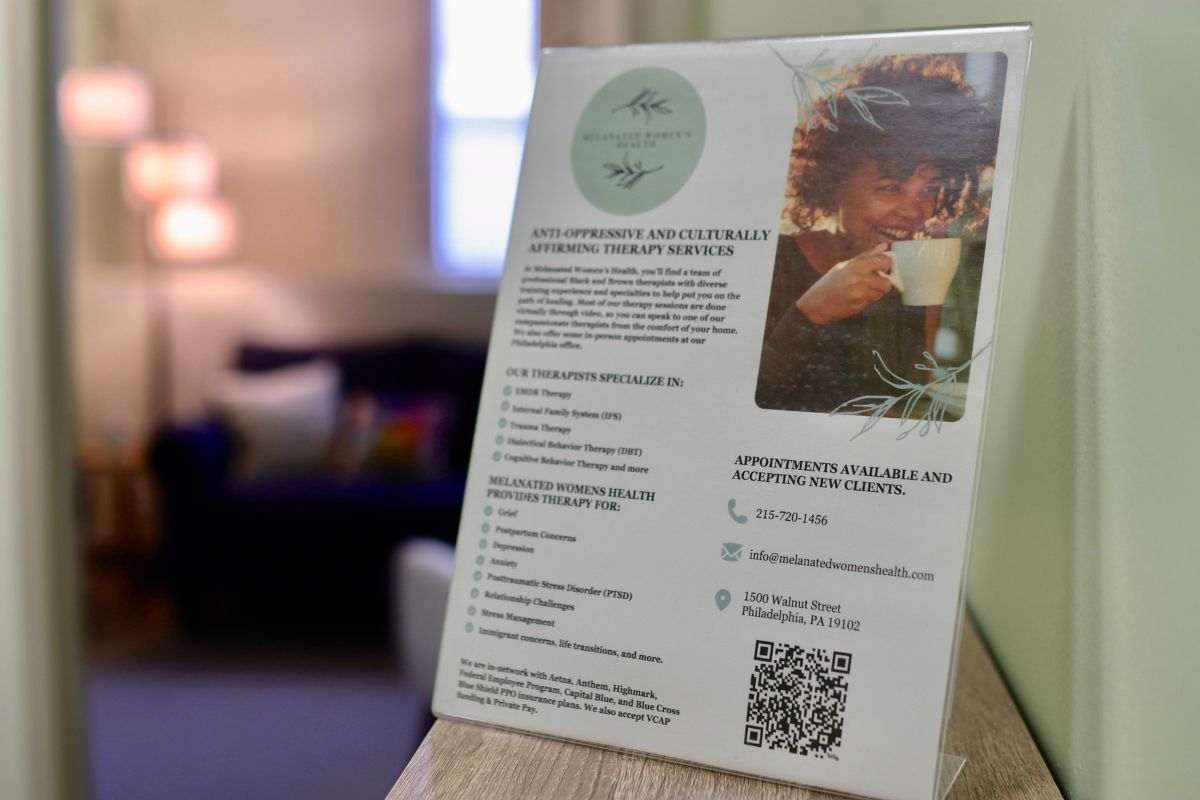The Grow Philly series is supported by the Philadelphia Department of Commerce. Technical.ly is a free news resource thanks to financial partners like this one! Want to see your business profiled? Take the quick survey.
When Nicola Pierre-Smith couldn’t find a therapist who understood what it meant to be Black, a woman and an immigrant, she built the kind of mental health space she wished she’d had.
Her clinic, Melanated Women’s Health in Rittenhouse Square, is centered on culturally affirming care for communities often left out of traditional therapy models. After six years, it’s expanding across Pennsylvania to Pittsburgh and into neighboring states, New Jersey and Delaware. Its presence in those regions aims to make therapy more accessible, she said.
“With my own mental health journey, it was really difficult to find a therapist who understood intersectionality,” Pierre-Smith told Technical.ly. “This is where it started for me and trying to fill that gap, that need for culturally affirming care.”
 Melanated Women’s Health founder Nicola Pierre-Smith (Gabby Rodriguez/Technical.ly)
Melanated Women’s Health founder Nicola Pierre-Smith (Gabby Rodriguez/Technical.ly)
Melanated Women’s Health offers therapists who are fluent in a variety of languages and does what it can to remain financially accessible. There are the benefits of sliding scale pricing, free consultations and assistance programs for crime victims.
Landing in Philly, Pierre-Smith said, was the perfect place to start.
A region with a foundation to build a strong business
Pierre-Smith established her business when she moved to the US from Jamaica, after pivoting from a career in personal banking. She chose Philadelphia because it was a diverse city where she felt she could have the most impact, she said.
In 2020, a year after she launched her company, Pierre-Smith had to figure out how to change direction in a virtual environment. However, by offering both telehealth and in-person therapy, this change turned out to be a way to expand her reach.
 Melanated Women’s Health office in Rittenhouse Square (Gabby Rodriguez/Technical.ly)
Melanated Women’s Health office in Rittenhouse Square (Gabby Rodriguez/Technical.ly)
Pierre-Smith credits the Hispanic Chamber of Commerce for helping her get started. The chamber assists small businesses, particularly those that cater to the Latino community, in building relationships that will help them expand.
Today, she still finds ways to connect with other neighboring businesses. Many of her customers are referred through word of mouth or through social media, and Pierre-Smith said she is proud of the strong reputation her business has built in the neighborhood.
“I have ties to a number of [people of color-owned] businesses and communities here, many of which are small and run by women,” Pierre-Smith said. “I found it crucial to rely on one another to support business success.”
A focus on intersectionality, where everyone is welcome
Therapy is frequently considered a white-centered field, and Pierre-Smith’s business provides services that are always evolving to ensure they adhere to practices that benefit various communities.
“I had a Jamaican college student and she used terminology that only would make sense in talking to another person who was also Jamaican,” Pierre-Smith said. Having therapists who speak the language provided a space where she didn’t need to struggle to translate her feelings into words that just can’t express the same things in English.”
 Melanated Women’s Health offers mental health services to people of all backgrounds (Gabby Rodriguez/Technical.ly)
Melanated Women’s Health offers mental health services to people of all backgrounds (Gabby Rodriguez/Technical.ly)
Although not everyone who shares someone else’s identity will be a good fit, Pierre-Smith acknowledged that it still offers safety and an understanding that many people find comforting, particularly when it comes to the fact that they don’t have to teach someone about a specific cultural value or find it difficult to personally relate.
Despite its primary focus on brown and Black Women, Melanated Women’s Health makes itself available to all communities. Additionally, she aspires to eventually become a hub for students from nearby universities such as Temple, Penn and Drexel, where she can create a pipeline for graduate students interested in careers in women’s health.
“We have clients who are male, non-binary and even white,” Pierre-Smith said. “We still welcome all people, men and women, because it is still important to get the care you require.

